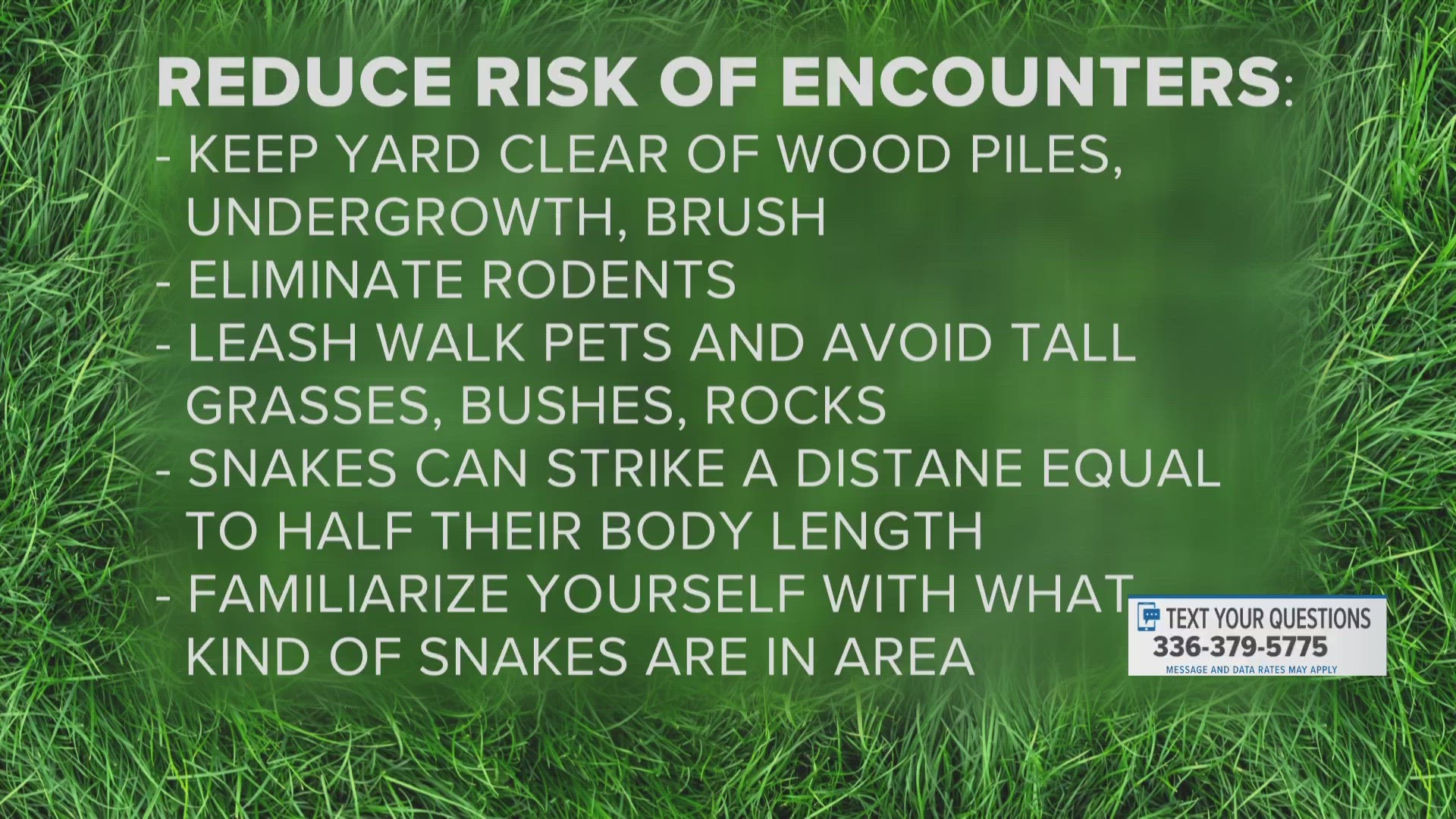GREENSBORO, N.C. — Summer means more time outside for you and your pet, but you need to be careful about what else is coming out this time of year that may be lurking nearby in the grass.
Dr. Kelley Gebhardt with Happy Tails Veterinary Emergency Clinic said spring marks the start of snake bite season in North Carolina. She said snake bites occur most often between March and October when snakes are most active. A snake bite is always an emergency and can be fatal if not treated immediately.
Reduce the risk of snake encounters
- Keep your yard clear of wood piles, undergrowth, brush, and other items.
- Eliminate rodents to prevent attracting snakes to your house and yard.
- Leash walk pets and avoid walking around tall grasses, bushes, and rocks.
- Snakes can strike across a distance equal to half their body length.
- Familiarize yourself with snakes common in your area. If your pet is bitten, identifying the snake may help with treatment.
Snake bite symptoms
- Fang marks may or may not be visible.
- Local or generalized swelling, redness, or purple coloration of the skin.
- Tenderness to intense pain.
- Lameness, lethargy, weakness, collapse.
What to do if your pet is bitten
- Seek veterinary care for your pet immediately.
- Do not use cold packs, ice, tourniquets, alcohol, bleed the wound or try to suck out the venom.
- Keep your pet calm. Limit their activity.
- If your pet was bitten on the neck, remove their collar.
- Do not try to catch or kill the snake to bring it to the veterinarian.



